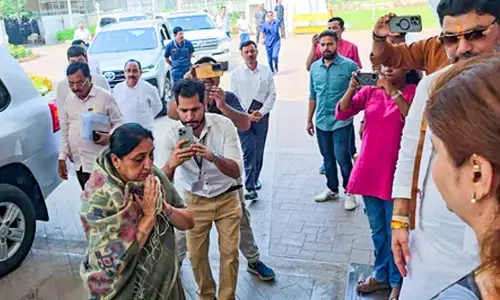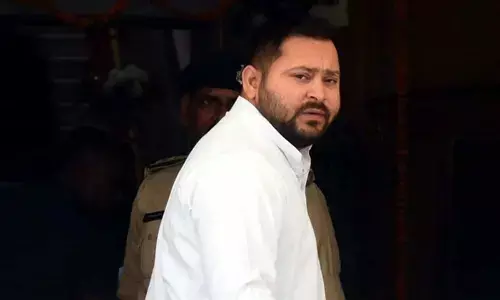MyVoice is to lift up the voices and experience

MyVoice is to lift up the voices and experience
Sushma Swaraj, an unparalleled leader
It is shocking that Sushma Swaraj, former External Affairs Minister, suddenly passed away on August 6, 2019.
She was a woman of independent views and effective and heroic calibre. She convinced envoys and Ambassadors of different and mighty countries in a crystal-clear manner the righteousness of the steps taken in respect of surgical strikes made by India.
In various capacities she served and successfully steered the country through diverse odds. She was a woman of integrity. She was not only brave with manly prowess but had good motherly attitude.
She spoke to a baby before taking her last breath. Though about one year ago she had problem of kidneys, she happily overcame it with the good wishes of the people of the country.
But in a short period, she succumbed to cardiac arrest. Her mortal remains were cremated with due national honours.
Prof Tuttagunta Visweswara Rao, Rajamahendravaram
BJP added insult to injury to J&K, Ladakh
As long as the BJP needed the support of regional allies, the issues of Article 370, Ayodhya and a uniform civil code had been put on the backburner.
Now the government appears to have decided that the time has come to throw all caution to the winds. The repeal of an article of the Constitution, weakened though it was over the decades, has been preceded by honing the instruments of repression.
The choice of the route of a Presidential Order to effect the change diminishes the stature of India's parliamentary democracy.
In colonial times our British masters had introduced a Central legislature whose members could discuss but not vote on crucial pieces of legislation.
Just because Article 370 had been instituted and amended through Presidential Orders in the early years of independence is no justification for following that undemocratic method after nearly seven decades of experience in parliamentary democracy.
Why should India's Parliament be reduced to discussing a fait accompli and rubber-stamping an autocratic decision in 2019? The BJP government has gratuitously added insult to injury by lowering the political status of the regional people of Jammu, Kashmir and Ladakh.
Falling short of the RSS's pernicious calls in the past to trifurcate the state along religious lines, the government's arbitrary decision to bifurcate does grievous injury to principles of federalism and democracy.
A State aspiring for greater autonomy has been reduced to two Union territories.
Genuine unity can never be achieved through forced centralisation and fiats from above. A free and flexible federal union would be a much stronger and longer-lasting Indian Union — a union that young people in the northern and north-eastern extremities of our country would yearn to join and not want to leave.
Vajpayee's invocation to insaniyat counts for nothing among the current leaders of the BJP.
The Central government has poured in tens of thousands of security personnel into Kashmir in the last few days in addition to the hundreds of thousands of soldiers already stationed there.
Dr K Hemalatha, Hyderabad
Centre left with no option
This is with reference to the news item 'PM hails revocation of Art.370' (August 9).
In the heavily militarised State, after seven decades, the Indian government has revoked the special autonomous status to Jammu & Kashmir State sanctioned as a gesture to strengthen the bond of affection and emotional affinity among the two communities there.
Under Articles 370 and 35-A Kashmir has been a self-governed State with the exception of the areas of defense, foreign affairs and communications.
The Article also prohibited non-Kashmiris from owning land or property in the region. The insurgency has raged in Indian-administered Kashmir since 1989 by Kashmiri militants seeking independence or more autonomy from the Centre.
The Pakistan government backed the militants who were raging a battle against India to grab Kashmir when the diplomatic tactics did not click.
The Pakistan government adopted a jiggery-pokery strategy by creating unrest in Kashmir through militancy though the Kashmir's access to India was final and non-negotiable which many of the world nations agreed as part of India.
The Pakistan government has made it an avowed objective to Islamize the valley or burn it to ashes.
Towards this agenda, the Pak government resorted to two-pronged attacks: one, Army attacks by infiltrating into Indian soil and two, abetting terrorism including luring the youth filling their minds with mysophobia to creating anarchy.
As the decades-long unrest paralysed the normal life and administration functioning persisted, the Centre was left with no choice but to bring the valley fully under its control.
Seetharam Basaani, Hanamkonda




